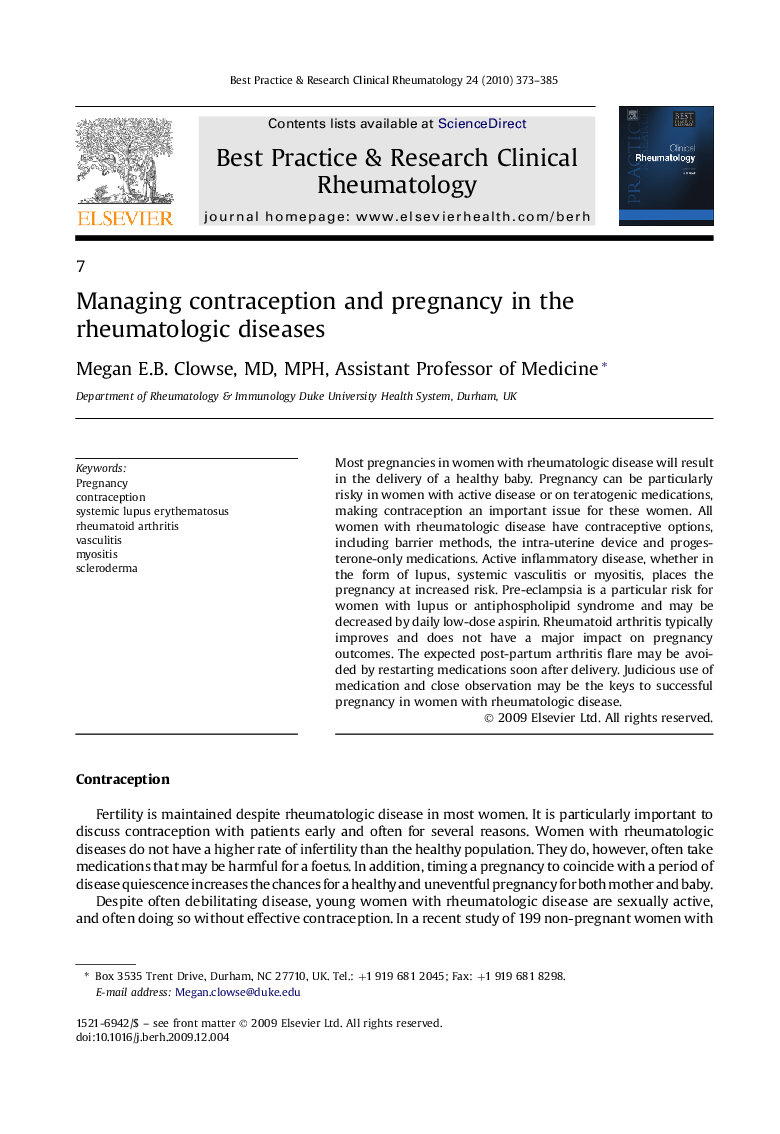| Article ID | Journal | Published Year | Pages | File Type |
|---|---|---|---|---|
| 3343389 | Best Practice & Research Clinical Rheumatology | 2010 | 13 Pages |
Most pregnancies in women with rheumatologic disease will result in the delivery of a healthy baby. Pregnancy can be particularly risky in women with active disease or on teratogenic medications, making contraception an important issue for these women. All women with rheumatologic disease have contraceptive options, including barrier methods, the intra-uterine device and progesterone-only medications. Active inflammatory disease, whether in the form of lupus, systemic vasculitis or myositis, places the pregnancy at increased risk. Pre-eclampsia is a particular risk for women with lupus or antiphospholipid syndrome and may be decreased by daily low-dose aspirin. Rheumatoid arthritis typically improves and does not have a major impact on pregnancy outcomes. The expected post-partum arthritis flare may be avoided by restarting medications soon after delivery. Judicious use of medication and close observation may be the keys to successful pregnancy in women with rheumatologic disease.
